Producer Stephen Street talks Blur
Stephen Street produced some of Blur‘s best and best-known albums including Parklife, The Great Escape and Blur. Here in a new interview he discusses each album in turn and his work on the new box set Blur 21: The Box.
SuperDeluxeEdition: For the new reissues and the Blur 21 box, you were involved in the remastering of the Blur albums you worked on originally. How was the process of listening back to that material?
Stephen Street: It was a wonderful experience to be able to go back into Abbey Road and dig out the 1/2 inch mix tapes. I haven’t physically seen those boxes since we did them. Originally, I think EMI were planning to use the production EQ masters – basically digital copies of those albums as they were done back in the 90s – but I was very keen to go right back to the original masters and start from there, and they agreed. It was great to hear those tapes again to be honest. What happened was we compared the 1/2 inch masters with the CDs that are out now [ie before the reissues and box set] and there was so much more stereo width and bottom end from the masters. I think back in the ’80s and ’90s for some reason engineers were rolling off the bottom end of things, it might be because they were cutting to vinyl where you sometimes have to limit the bottom end if the album is quite long, but anyway, it was good to hear the original 1/2 mixes and they did sound really fine, and in fact I think there was less EQ put on them this time around. It brought back a lot of memories, because obviously there was a lot of music to listen to, and one doesn’t normally spend all of one’s time listening to records you’ve made in the past!
SDE: Were the tapes in reasonable condition?
SS: We had to bake them. So it was a good job we were doing this at this point, because I think the tapes were getting a bit sticky. What happens is the solution that goes into the chemical make up of tape itself starts to break down and goes sticky and as it goes through the machine it starts to ‘stick and flip’ – you get this warbling effect, so they had to be baked and fortunately we were able to play everything through okay.
SDE: Did you work on all the additional bonus material?
SS: I was only involved in the stuff that I worked on, like the B-sides and things that were worked on roughly around the same time as the album. As far as the demos and the early outtakes go, I think that was more from Graham’s archive. I gather there were a few things that were transferred from cassette even. I wasn’t too involved with that, but all the wonderful tracks that were recorded that didn’t make the album and were often B-sides, it was great to hear those again. Back in the day, in the ’90s, when there was a single coming out you had CD1, CD2, the seven-inch and the twelve-inch, so you had all these B-sides [that needed to be recorded].
SDE: Going right back to the beginning then with the first album, what were your first impressions of the band and what attracted you to trying to get together with them?
SS: I was a big fan of their first single She’s So High and I just had a convenient link to their record label through my manager who was managing Jesus Jones, who at that time were bigger than Blur and were doing quite well. So I knew Gail [Gail Coulson, Street’s manager] was talking to Balfe [Dave Balfe, Food Records MD] quite regularly and I said to her one day that the next time you’re talking to him could you mention that I like the band, and if by any chance they are looking for a producer, I’d be very interested. She passed on that message and initially Food records came back to me and said thank you, but no thanks, we’re going to stick with the people who did the first single, Steve Powell I think it was, so I just thought, oh well that’s an opportunity gone. But what happened then was they started recording the next single and it didn’t quite work out either to the band’s or record company’s full satisfaction, so Balfe got in touch, and by this stage the band had heard that I’d said I’d be interested in working with them – and they were Smiths fans and were keen to meet me too – so we had a meeting and agreed to do a test session of two songs, one of which was There’s No Other Way. I went off somewhere for a couple of months and when I got back to England There’s No Other Way was in the chart and it was flying high and everyone was getting quite excited. I was then given some more tracks to do on the Leisure album – I think I did about a third, or thereabouts – and that was the start of a long and fruitful relationship. Although I nearly didn’t get the second album…
SDE: Dave Balfe did appear to have some issue with you around this time, which seems strange given that you had delivered a top ten hit. During this early stage did you feel like you were working for the band or the record label?
SS: My gut instinct, for me when I’m working with an act in the studio – my policy throughout my whole career really – is that I regard myself as working for the band. I know the company are paying the money for my services, but that is really the band’s money that is being spent. And I do think sometimes that people do forget that we [producers in general] are working for the band and providing our services for them. Nine times out of ten I’m always on the band’s side when it comes down to some kind of argument. Often major record labels sign an act because they see something original in that act – something about them is special – and then promptly put them in a situation where they are trying to make them sound like somebody else. It’s nonsense really. I knew that when they started their second album I wasn’t in the frame and they were planning to do it with Andy Partridge, which is understandable really since Andy Partridge is a very talented musician in his own right. I was a little bit disappointed, but then I had that very fortuitous bumping into Graham at a gig up in London, and I saw he was looking a little bit down and I just said to him, you’re a great band, you’ll get through this and he must have gone back and mentioned to Damon that he’d bumped into Streety last night (as he called me) and sure enough within a couple of days I got a phone call from Damon saying would I like to come along to a meeting to talk about getting involved with the second album. It was a chance meeting and if it had not have happened things could have been completely different.
SDE: When you came on board for the second album did you make a point of listening to the stuff they’d done with Andy Partridge?
SS: No I didn’t listen to any of the stuff they’d done with him. I think I’d heard a couple of tracks they’d done with Steve Powell again, which I thought sounded great, but I basically went in and started from scratch. I’m looking forward to hearing these Andy Partridge versions because I’ve never heard them. [they are on the rarities discs of the new Blur 21 box set].
SDE: With Modern Life Is Rubbish, how did it work from a producer’s point of view? Did you sit down with the band and plan what kind of sound you are going to go for, or is it intuitive – the band already know what you’re bringing to the table and let’s get on with it.
SS: We kind of hit the ground running, It was just a case of what song are we going to do today and they start playing it. I’d start piecing together what I regard as the right kind of drum sounds with the engineer John Smith – who was a very big part of the team that were involved in those records – and we would then just hit upon getting a good sound for everyone and they’d play through the backing track and we’d listen back the the tape – in those days we were working on tape – and if it wasn’t good enough we’d rewind the tape and go over it again, until you got a version that you thought was good enough, basically. We seemed to be on the same page as it were as far as taste goes and I felt like I was their older brother through the whole process of making a record, especially as I went on working with them more and more – I felt very close to them, a very tight kinship with them.
SDE: And they must have regarded you as a strong ally, since I know initially the record company weren’t happy with the songs that were delivered for that second album and they sent Damon away to write some more.
SS: I remember finishing the record or heading toward the end of the record in December of that year [1992] and Balfe coming in and basically washing his hands of the record, saying it’s crap, it’s going to sell to a few thousand NME readers and that’s it – there’s no hits on there. His vision, which had been distorted by the success of Jesus Jones in America, was to try and have another band that he could crack America with, and obviously this album was not going to do that. But to be fair to Dave Balfe, it did spur Damon on to think, well fuck you I’m going to write a couple of hits now. Which led to him writing For Tomorrow and Chemical World – they were very worthy additions to the record, and in the end it worked out for the best.
SDE: Although the commercial performance of those singles was disappointing, in the end, wasn’t it?
SS: Yes, it was. But at the same time though, we knew we’d done something right because unlike these days with radio play for alternative artists, [BBC] Radio One was playing it. They were playing For Tomorrow, they were playing Chemical World. So at least they got through that very dodgy phase where the band could have slipped off the radar, at least there was a lifeline still. And optimism. I remember the album coming out and it wasn’t a huge commercial success, but the record sales for indie acts were much more healthy than they are at this present time, so although it might have only got to number 15 in the charts or something like that, it still sold relatively well – enough to keep EMI happy. And of course they played the Reading festival that year [1993] in the tent and the atmosphere was incredible. All the fans knew all the lyrics to all the songs from the second album, and we knew the record had reached those people and there was the beginning of something here. It really was the step up the ladder that the band needed at the time, and it was a stepping stone to what would come later on, obviously.
SDE: The band went very quickly in to doing Parklife didn’t they? There wasn’t much hanging around?
SS: No much at all. I remember when they were doing that gig at Reading, they were playing a set which already included songs like Bank Holiday that where going to be on the Parklife album. I think Damon hit his stride at this point and there was a very positive feeling in the camp, and a sense of vindication that what you’d done was the right thing, let’s keep the ball rolling. And this time there wasn’t any objection from Balfe to me being the producer on the record and we got stuck in. I think on the first session we did Bank Holiday and Jubilee, songs that were already being played in the set and Parklife was also being played before we started the album.
SDE: Is is true that during the recording of the Parklife album the band would have to get demos approved by the label before being given the okay to record them properly with yourself?
SS: Yes, that’s correct. Balfe and Andy Ross [Balfe’s partner at Food Records] liked to hear what the band intended to record, and they’d give them demo time and then pick what they’d like them to record with myself. It was a good process for them and sometimes the demos were so good that they were able to release them as B-sides or indeed they became album tracks themselves in their own right. It was a good learning curve for them.
SDE: With the Parklife album there is clearly a more commercial, poppy feel to that record, with the programmed drums on some tracks for example. Was that just an organic process that just happened on the back of the kind of songs the band were bringing into the studio?
SS: Yes, especially with Girls and Boys. When Damon played me the homemade demo he had made of the song, I thought the approach to that should be not to do a live band thing, but to try and make a disco record. I remember at the time there was two forms of dance music around, you either had the house music which was around 132bpm and upwards from there, or you had the lolloping Manchester hip-hoppy kind of beat that was around the 100bpm mark. And I said to Damon this should be 120bpm – the tempo of a classic disco track. To make sure we get that feel to it, let’s do a programmed drum and get Dave to add some overdubbed cymbals to it, and really go for a disco-type production. Once Alex started putting his bass line on it, it really went in that direction, but then Graham put his guitars on it and pulled it back a bit! That was another thing I loved about that band – the chemistry. We were able to do anything on that record but it was still undeniably Blur.
SDE: Was there a feeling when you finished Girls And Boys that you knew the band were going to have a bit hit record?
SS: Definitely. I hadn’t been given clearance by Food to do that track. We were doing other tracks that had been approved, then Damon came in with that homemade demo, and I just thought let’s do it. It came together very quickly. And I remember Andy Ross from Food phoning me the following day to check in and see how the session was going, and I said to him that we’d just done this track that was going to be massive, and there was this little cough at the other end of the phone, and he said well we haven’t actually authorised you to do that one Stephen. I just said, well listen mate when you hear it, you’l love it, I promise you. I remember saying to Damon when we were doing it, that I think this will be your first top five hit. And it proved to be the case.
SDE: What was it like going back into the studio to start work on The Great Escape, because obviously you’re starting a new album on the back of a massive success – it must have made the atmosphere quite different.
SS: There was pressure definitely. And at this stage we had the paparazzi shooting Damon and Alex when they were out at nightclubs and things like that. They were very much in the public eye. I think Damon was feeling the pressure more than he actually let on at that time. I think inside he was slightly cracking up, to be honest with you, looking back on it. But no, we just applied ourselves, we got into the rhythm of it pretty quickly, and the actual process of making the record…. well, we were just like a well-oiled machine at this stage. We just went into it and carried on pretty much in the same working mode that we were in when we did Parklife. Same studio. Same producer. Same engineer. We knew our strengths and we just clicked into gear.
SDE: Sometimes that album is referred to as the final part of a trilogy of themed albums around British life – do you see it like that?
SS: I do in a way. It’s funny because I didn’t really have that many fond memories of the album. When we finished it, I thought it wasn’t as strong as the previous two albums, but it’s funny because when you listen back to it, as I have done recently, there’s some fantastic songs on there actually, I really love Fade Away, The Universal is an incredibly strong song, I love Yuko And Hiro, Charmless Man still has its.. charms. So I thought actually, this isn’t a bad record at all, and apparently it’s Andy Ross’s favourite album!
SDE: What about Country House? You haven’t mentioned that…
SS: I’m a bit tired of that to be honest with you…
SDE: Putting the Oasis ‘battle’ to one side, was it the right single to lead off with?
SS: What killed it for me was that horrible video they made for it. It just cheapened the whole thing. I just hated that video. And that whole ‘war’ thing… it was exciting at the time, getting on the BBC news at nine, and everyone getting behind the Blur v Oasis war, but it distorted everything a little bit for me.
SDE: As a producer, how much did you end up getting sucked into that?
SS: A little bit. We would occasionally go out for a drink in the evening. We’d finish at about 9.30 or 10pm and I might go for a quick beer with the guys. I remember going up the West End [of London] with Alex and Damon one night and Liam Gallagher being particularly aggressive and nasty to Damon. I was witness to that, and I thought this isn’t particularly healthy. But obviously I wasn’t really feeling the pressure like they were because no one really cares about the producer – you don’t get the paparazzi shooting you coming in and out of your home and all that nonsense.
SDE: Blur the final record that you worked on was obviously quite different to what had come before. Did Damon or the band sit down with you and talk about what they wanted to do?
SS: There was a general consensus, I think amongst everyone, that we’d gone as far as we could with the what we’d done with the previous albums and I think there was a desire to get back to roots a little bit. I remember Damon coming for a long car ride with me and he brought a cassette with all these basic demos on. I think at this stage we hadn’t demo’d the songs properly like we had on the previous albums. i.e. they hadn’t gone in as a band. These were just cassette recordings of rehearsals or cassette recordings of Damon doing a song at home, with piano and voice, or guitar and voice. And he expressed to me that he wanted to do a very honest stripped down record. What struck me also, was lyrically he was singing less about characters – like ‘Tracy Jacks’ or ‘Colin Zeal’ – they were all much more first person. And there was this influence of Americana and lo-fi. So we said okay we’ll do this next record and they’ll be more space on it. We’re not going to put brass sections and keyboards over everything and just trying make it a little more ‘honest’. We caved in on one track because Look Inside America did need a string section and harp on it, but it worked wonderfully for that song. At this time I’d bought a new digital hard disc recorder called RADAR which enabled me to record them jamming and edit bits together really, really easily.
SDE: Does that mean that album wasn’t recorded to tape then?
SS: No it was recorded to my RADAR. There was only a couple of them in the country, I was one of the first people to buy one. I think George Michael bought one, I bought one… I can’t remember who else, but it was quite new technology at the time. It was 16 tracks – it wasn’t like Pro Tools now where you have countless tracks – and I’d record the band. Things like Essex Dogs is a 15 minute jam and I’d cut together all the best bits. The beginning of Song 2 is a couple of room mics and Dave and Graham were just bashing around with a rhythm and I’d recorded a little bit, and by using a loop function on this recorder, I made up a drum loop and they jammed along to it. It was never thought of as being a single, just a bit of fun. So things like that happened. Technology was able to let us record in a different manner, and of course it led to a very different sounding record compared to the previous three.
SDE: Using that RADAR system, what impact did that have on the remastering?
SS: We did use tape as well. I was saving the RADAR to tape. Once I had the backing track as I wanted on RADAR, I would transfer that to tape and we would carry on recording on tape and when it came to mixing, I would get the RADAR back out again and have the RADAR and tape running together. So it was a mixture of analogue and digital, but the digital was a very good quality digital, because it was the top professional end of the market, as it were. I’m very proud of that record actually, I think sonically it’s the best sounding record out of all of them. It’s my favourite record as well.
SDE: You didn’t do the follow-up album 13, that fifth album Blur represented the end of your partnership, if you like. Were you surprised not to get the call?
SS: To be fair Damon told me himself. There were touring around the time of that fifth album, and I went down to Brighton to see them, and there had been this Bustin’ + Dronin album which was a remix album of tracks from that record, and I remember hearing that and thinking that the best stuff on there in my opinion was the William Orbit remixes and I knew Damon was keen to try a new direction with recording. I think what we’d done with the RADAR on that album had given him a taste for that way of working. So as I say, he had the guts to face me himself. It was at the aftershow at the Brighton gig, and he just said Stephen, the next record we’re going to make with William, I just wanted to let you know. And I said that’s fine Damon, I understand, but of course inside I felt hurt, obviously. It wouldn’t be human not to feel that way. But at the same time I understood it was perhaps time for them to try a different working process and a different person.
SDE: What made Blur special?
SS: There is that chemistry. All the best bands have a chemistry that works. You might have a strong opinionated person, someone who’s more easy going, and maybe someone who’s a bit artistically on edge… if you had four of the same type of person in a bit it would be a logistical nightmare. But the best bands have a chemistry and they had that. For all of Damon’s strengths, he had weaknesses in other areas which Alex or Graham could fill, you know? And they’d grown up together for a long time, there was a real understanding between them. They had their dark times. I remember having to go around to see Graham before we made the Blur album and talk him back into the studio again. He just did not want to go in the studio with anyone. But ultimately when they did get in there, they could put their hand to any type of music and it would end up sounding like Blur. A bit like The Smiths really, the same kind of thing. The best bands can do that. They don’t feel inhibited, they can stretch out and try lots of different types of things and still be unmistakably them.
SDE: Do you think Blur will ever record another album?
SS: It’s really hard to judge. I haven’t seen them personally, or spent much time with them for quite a few years now, although I’ve seen Graham on and off over the years making records for his solo career. As to whether they want to work together again as a unit, I’d love to see them get back together again. I think the new single they’ve brought out is fantastic, but as to whether Damon would want to limit himself by being a front person in a band again, I’m not sure. A question that only he can answer really.
SDE: Because the Olympics are about to start, I will use the word ‘Legacy’… what do you think Blur’s legacy is, and how do you rate their contribution to British music?
SS: To continue the Olympic analogy, I think of it as a relay race, passing on the baton. The Kinks, The Stones and The Beatles passing it on to Bowie, who passed it on to The Clash, The Jam and the Pistols, who passed on to The Specials, Madness and they passed it on to The Smiths, Echo And The Bunnymen and then The Stone Roses and The Happy Mondays. There’s that great lineage of British bands. Fortunately we’re very good at creating those thing over here…
Stephen Street was talking to Paul Sinclair for SuperDeluxeEdition.
7 Comments
7 thoughts on “Producer Stephen Street talks Blur”
Leave a Reply
You must be logged in to post a comment.

 Interview
Interview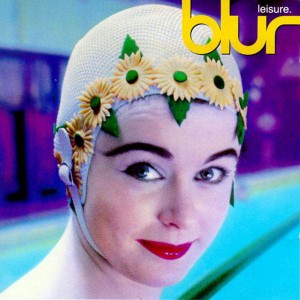
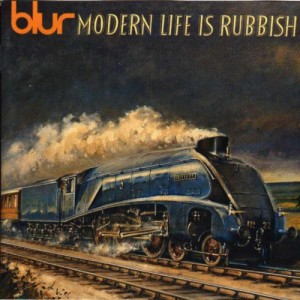
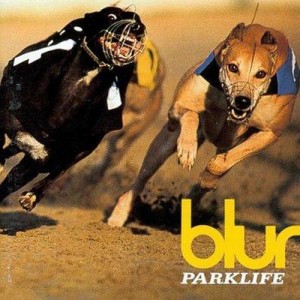
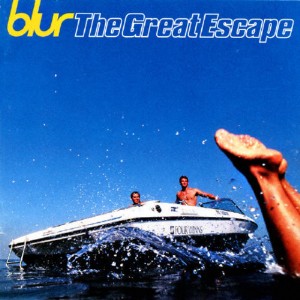
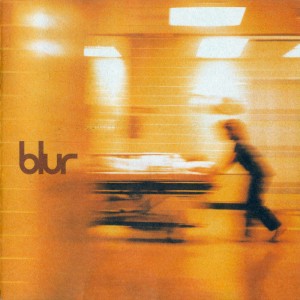

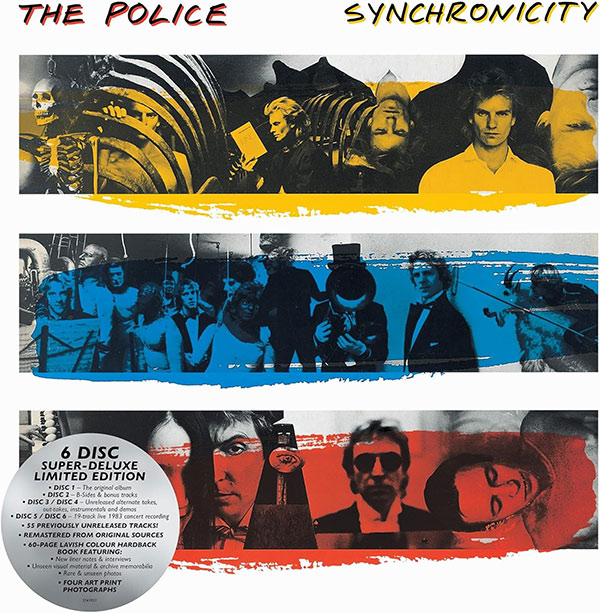
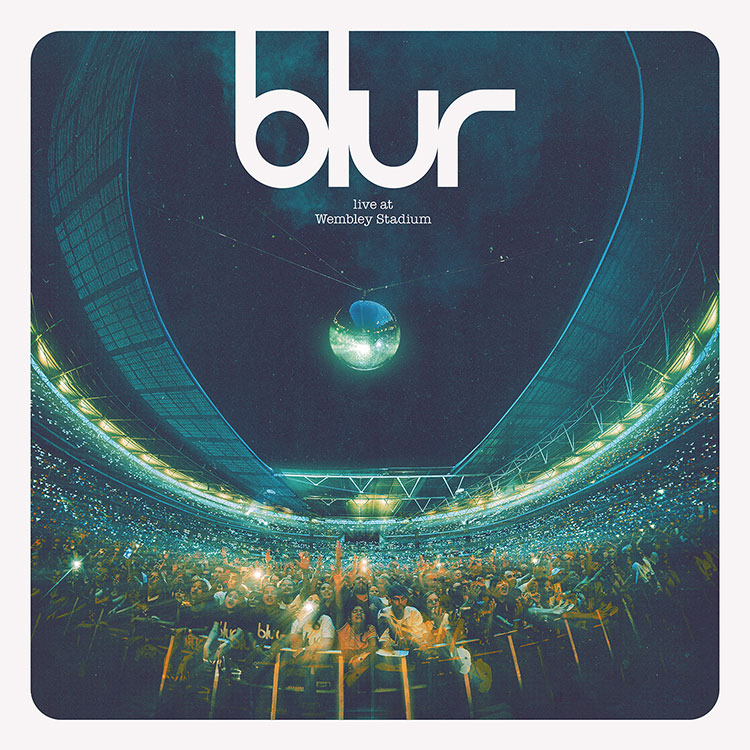
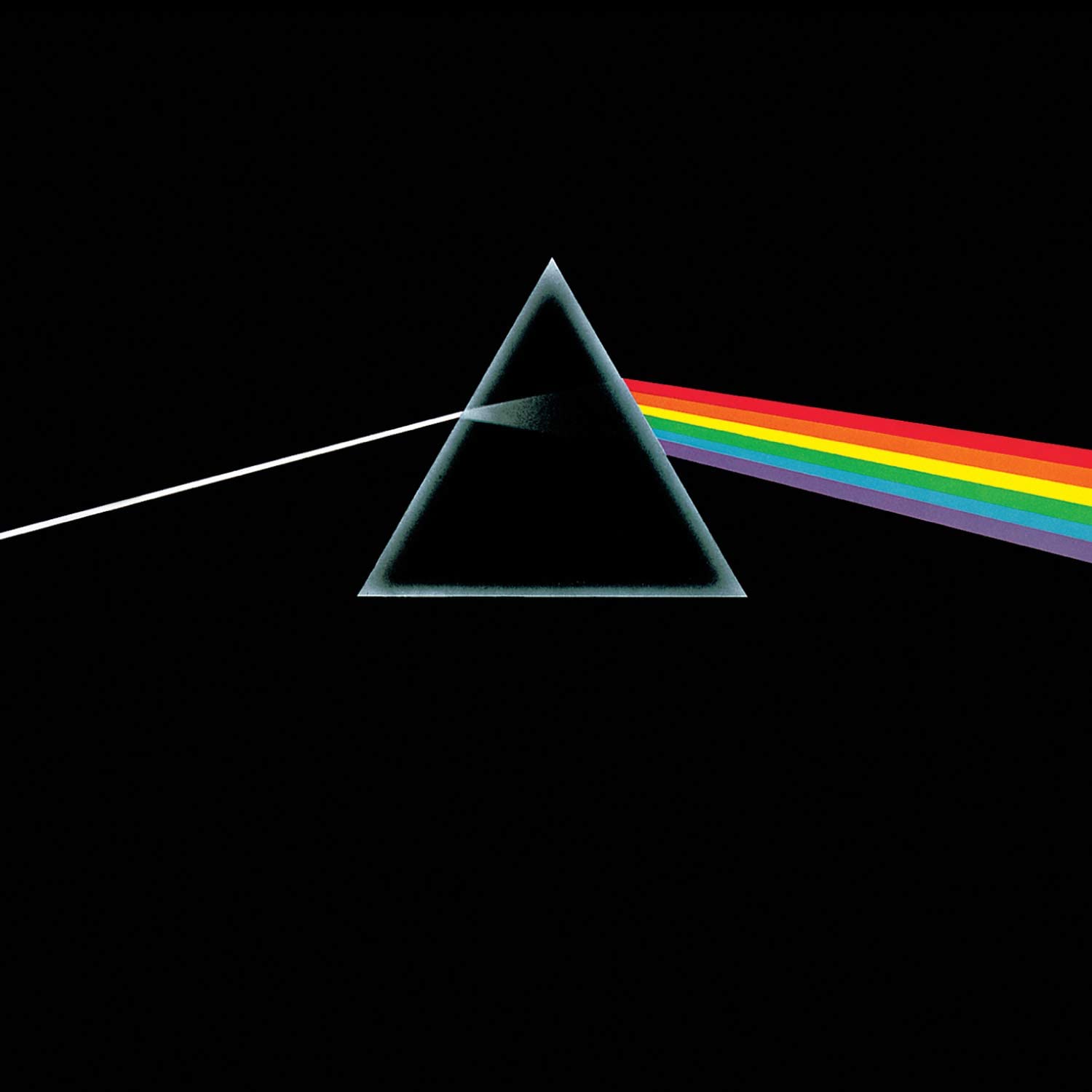
As the copyright owner of the photo that you are using on this site of Stephen Street and Blur, I would like you to contact me please and explain why you are using it without my permission or fee.
Thank you
Chris Taylor
Thanks for this interview – really great. The Blur box is one of my favourite boxsets – so much great music, well presented, and with some wonderful ‘new’ songs.
Thanks Joel
Great interview, really enjoyed reading it. It helps that you ask some good, non-sensationalist, questions, unlike many music journalists these days. Now it makes me want to get all these reissues!
I got these sets (CDs + Vinyl). In the 90’s, in America, I only really loved 4 British bands… (Suede, Pulp, Blur, Elastica). So when a box like this comes out, it’s extraordinary. When you hear the songs are remastered by Frank Arkwright, who did such a great job with The Smiths’ 2011 remasters, it made it a no-brainer for me. HOWEVER, I didn’t realize at the time, or even until I received this box, the version of “Chemical World” that appears on the U.S. version of “Modern Life is Rubbish” is much, much, much better than the U.K. album version. And while the “Reworked version” makes it a little better, it’s still a far cry from the splendid version recorded for the U.S. release. It’s a completely different recorded vocal and the music has a lot more punch. The fact that it was overlooked for this box, it not being included, is disasterous. In fact, it’s so much better, I cannot believe that this U.K. version was even a single… They also omitted their cover of the Who’s “Substitute”, which I don’t mind them leaving off, to be honest. The box set is otherwise great. It’s just my bad luck that “Chemical World” is my favorite Blur song and I don’t get the proper version with these expensive sets.